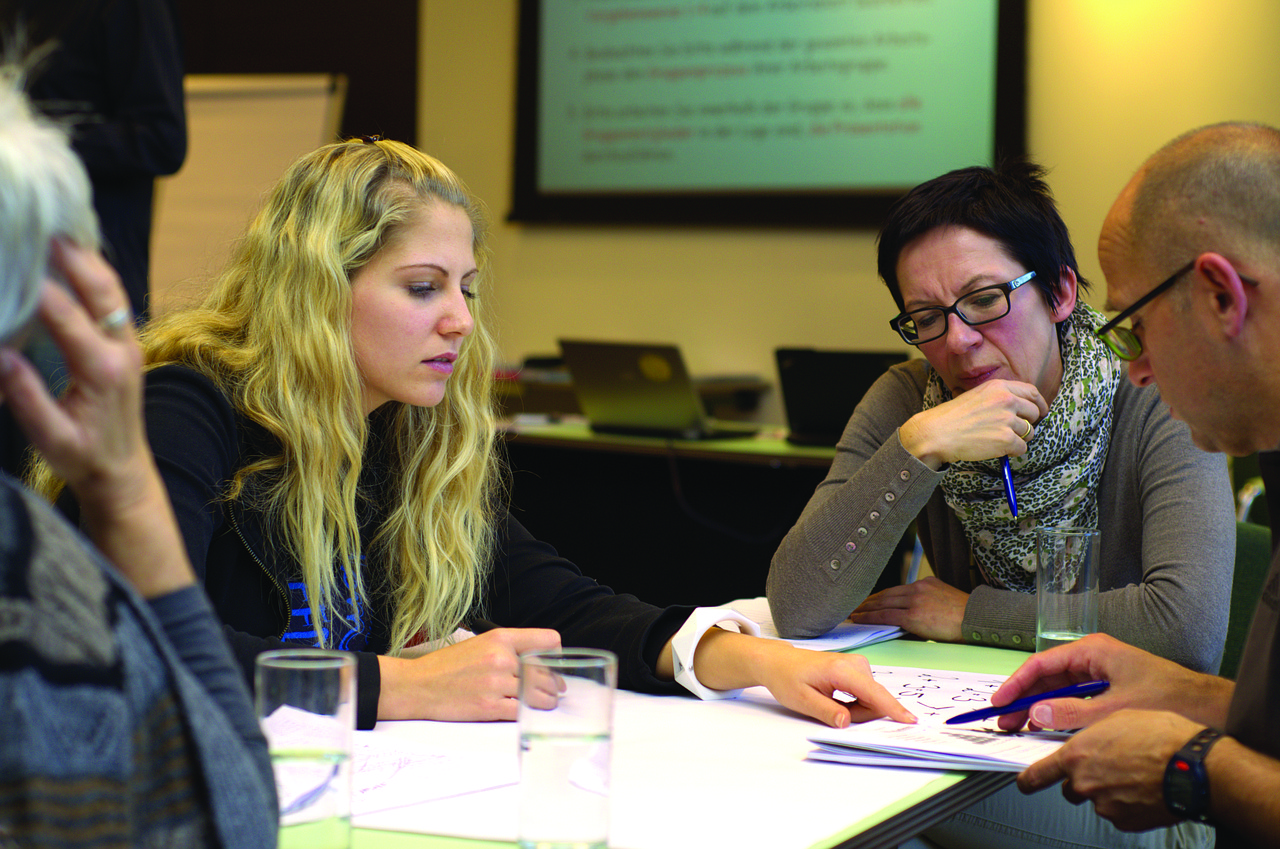In today’s fast-changing job market, setting goals for professional development is essential because it helps you stay relevant and competitive. Work environments are constantly evolving, with new technologies, trends, and ways of doing business. Without setting clear goals for improving your skills and knowledge, it can be easy to fall behind.
By setting goals for professional development, you ensure that you are always learning, growing, and adapting to new challenges. This could involve upgrading your current skills, learning new ones, taking on new responsibilities that make you more valuable to your employer, or even opening up new career opportunities. Ultimately, these goals help you move forward in your career, stay motivated, and increase your chances of success, even as the world of work changes around you.
The purpose of this article is to explore effective goals that professionals can set to improve their skills and advance their careers. By focusing on the right goals, individuals can strengthen their abilities, stay competitive in their field, and open doors to new opportunities. These goals might include improving technical skills, gaining leadership experience, pursuing further education, or expanding professional networks. Setting clear, actionable goals helps professionals track their progress, stay motivated, and ultimately achieve long-term success in their careers.

Understanding Professional Development: Definition and Benefits
Professional development refers to the activities and efforts that help individuals improve their skills, knowledge, and abilities related to their careers. This can include a wide range of actions such as taking courses or workshops to gain new knowledge, earning certifications to prove expertise, attending industry events to stay current, and seeking mentorship to improve leadership skills. It’s all about continuous learning and growth to enhance one’s professional abilities.
- Career Advancement: Professional development helps you stay competitive in your field by keeping your skills updated. This increases your chances of earning promotions or landing new job opportunities.
- Personal Growth: As you learn and grow, you become more confident in your abilities. You’ll also develop problem-solving skills, increase your creativity, and improve your communication, making you a more well-rounded professional.
- Job Satisfaction: Engaging in professional development helps you feel more capable and accomplished in your work. It keeps you motivated, reduces the risk of burnout, and provides a sense of purpose and achievement as you accomplish your goals.
In short, professional development is a key factor in building a successful, fulfilling career by enhancing both your skills and your personal growth.

Types of Professional Development Goals
1. Skill Enhancement Goals: Improving Your Abilities
Improving the skills you already have or learning new ones is a key part of professional development. This could involve enhancing your technical skills, such as learning a new software program or developing soft skills like communication, teamwork, or problem-solving. Continuous improvement in your skills keeps you competitive in your job and opens up new opportunities for growth.

2. Networking and Relationship Building: Expanding Your Professional Connections
Building a strong network of professionals in your field is essential for career growth. Networking helps you connect with people who can provide guidance, share industry insights, and create job opportunities. Strengthening relationships with colleagues, mentors, and industry peers is an important goal that can lead to new partnerships and career advancements.

3. Certifications and Education: Boosting Your Qualifications
Pursuing formal education or obtaining professional certifications is another powerful way to enhance your career. Whether it’s getting a degree or earning a certificate in a specialized area, education increases your credibility and shows employers that you are committed to improving your expertise. This can lead to better job offers and a higher salary.

4. Work-Life Balance Goals: Managing Time and Stress
Achieving a healthy work-life balance is crucial for long-term success and happiness. Setting goals to manage your time better, reduce stress, and balance work commitments with your personal life can improve both your productivity and overall well-being. A well-balanced professional life leads to better job satisfaction and reduced burnout.

5. Leadership and Management Goals: Preparing for Leadership Roles
Developing leadership skills and preparing for managerial positions is an important goal for those looking to move up in their careers. This could involve learning how to manage teams, improve decision-making, and develop a strategic mindset. Strong leadership skills can help you take on more responsibility and increase your influence in your organization.

Setting SMART Goals for Professional Development
The SMART framework is a powerful tool for setting effective professional development goals. It ensures that your objectives are clear, attainable, and aligned with your career aspirations. SMART stands for:
- Specific: Define the goal with clarity. What exactly do you want to achieve?
- Measurable: Quantify the goal so you can track progress and determine when it’s accomplished.
- Achievable: Ensure that the goal is realistic and can be reached based on your current resources, knowledge, and time.
- Relevant: The goal should be aligned with your broader career objectives and contribute meaningfully to your professional growth.
- Time-bound: Set a clear deadline for when the goal should be completed to create urgency and maintain focus.

To apply the SMART framework to professional development goals, you can follow this approach:
Start by defining a clear and specific goal, like earning a new certification or improving a skill. Then, make sure you can track your progress by making the goal measurable—for example, “I will complete 40 hours of training” or “I will attend one networking event every quarter.” Ensure the goal is achievable by considering your current schedule and resources, like having enough time to study or attend events. The goal should also be relevant to your career, such as getting a certification that will help you advance in your field. Finally, give yourself a time-bound deadline, like “I will earn this certification in 6 months” or “I will attend four networking events this year.” This helps you stay focused and motivated.
How to Track Progress and Stay Motivated
1. Regular Check-Ins: Review Your Goals Often
It’s important to regularly check your progress toward your goals. Set aside time each week or month to see how far you’ve come. If things aren’t going as planned, you can adjust your approach or timeline. Regular reviews help keep you focused and ensure you stay on track to meet your goals.
2. Accountability Partners: Get Support From Others
Having someone to keep you accountable can help you stay motivated. This could be a mentor, colleague, or even a friend. They can encourage you, provide feedback, and remind you of your goals when you need it most. Working with an accountability partner makes it harder to lose focus and easier to stay committed to your professional development.
3. Celebrating Milestones: Reward Yourself for Progress
Take time to celebrate small achievements along the way. Whether it’s completing a training module or attending your first networking event, recognize your progress. Celebrating milestones boosts your confidence and helps keep you motivated to reach the next goal. Positive reinforcement makes the journey more rewarding and enjoyable.

Overcoming Challenges in Professional Development
Common Obstacles in Professional Development
When it comes to professional development, many people face common challenges that can slow progress. Some of these obstacles include:
- Time Constraints: It can be hard to find time for learning or self-improvement, especially if you have a busy work schedule.
- Lack of Resources: Not everyone has access to the training, tools, or support they need to grow in their careers.
- Procrastination: It’s easy to put off professional development when other tasks seem more urgent or when motivation is low.

Strategies to Overcome These Challenges
While these obstacles are common, there are ways to push past them and stay on track with your professional development goals:
- Stay Focused and Prioritize: It’s important to figure out what matters most for your growth. Take a step back and decide which skills or goals will have the biggest impact on your career. Once you know, make them a priority in your schedule.
- Break Goals Into Smaller Steps: If you’re feeling overwhelmed, break your larger goals into smaller, more manageable tasks. Instead of saying, “I’ll learn everything about digital marketing,” start with one course or topic at a time. This makes the process feel less intimidating and helps you keep moving forward.
- Use Time Wisely: If time is tight, look for opportunities to learn during small windows of time. For example, listen to podcasts, audiobooks, or take short online courses during your commute or breaks. Every little bit counts!
- Find Support: If resources are limited, consider free online tools or platforms. You can also reach out to mentors or colleagues who might be able to offer advice, resources, or support. You don’t have to do it alone.
- Combat Procrastination: Procrastination often happens when tasks feel overwhelming. To fight it, try setting short, focused work sessions, like the Pomodoro technique, where you work for 25 minutes, then take a short break. This keeps you from feeling burned out and helps build

The Role of Employers in Supporting Professional Development
Employer Responsibility: How Companies Can Support Employee Growth
Employers play a key role in helping their employees grow professionally. Companies can support their teams by offering things like training programs, mentorship, and access to helpful resources. Training programs help employees learn new skills or improve existing ones, which is essential in today’s fast-changing job market. Mentorship, where experienced employees guide newer ones, can also be incredibly valuable, offering advice and sharing knowledge. Employers can also provide resources such as online courses, books, or tools that help employees grow in their careers.

Mutual Benefits: How Employees and Employers Both Win from Growth
When companies support employee development, it’s a win-win situation. Employees benefit by gaining new skills, advancing in their careers, and feeling more motivated in their work. This leads to job satisfaction and even higher productivity. On the other hand, employers also benefit because they get a more skilled, engaged workforce. Employees who feel supported are more likely to stay with the company, reducing turnover and recruitment costs. In the long run, fostering a culture of growth helps both the employee and the employer succeed together.
By investing in their employees’ professional development, employers help build a more skilled, motivated, and loyal team, creating a positive impact on the entire company.

Conclusion
In today’s fast-changing world, setting goals for professional development is crucial for career success. By focusing on improving skills, gaining certifications, building a strong network, and maintaining a healthy work-life balance, you can stay ahead in your career. Using the SMART framework helps you set clear, achievable goals, while regularly tracking progress, having accountability partners, and celebrating small wins will keep you motivated. Even when challenges like time constraints or lack of resources arise, there are simple strategies to overcome them and keep moving forward. Employers also play a big part in supporting their employees with training, mentorship, and resources. When both employees and employers work together to foster growth, everyone benefits. So, keep learning, setting goals, and pushing yourself to grow—your career will thank you!
Related Posts
Boost Your Success: A Simple Guide to SMART Goals
From Dreams to Reality: How I Can Achieve my Goals with Confidence
How Managers Can Use Goal Setting Theory to Motivate Employees
Unlocking Success: 20 Effective Team Goal Setting Activities
